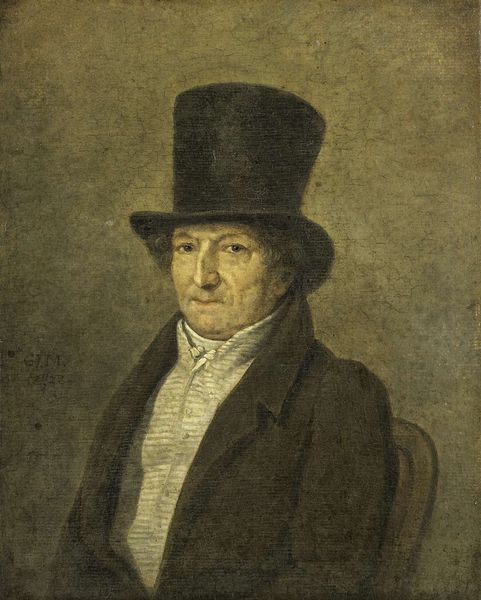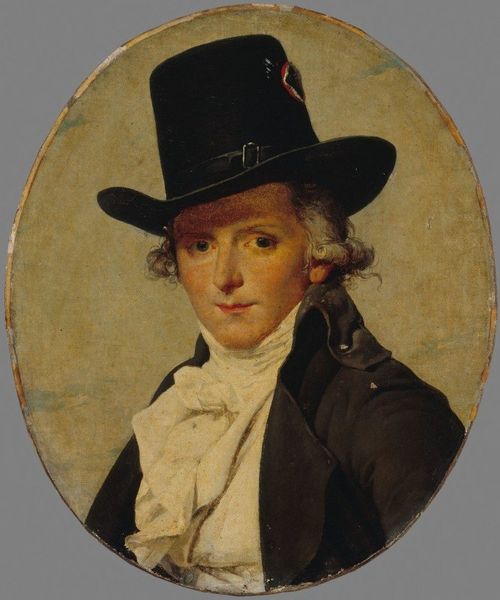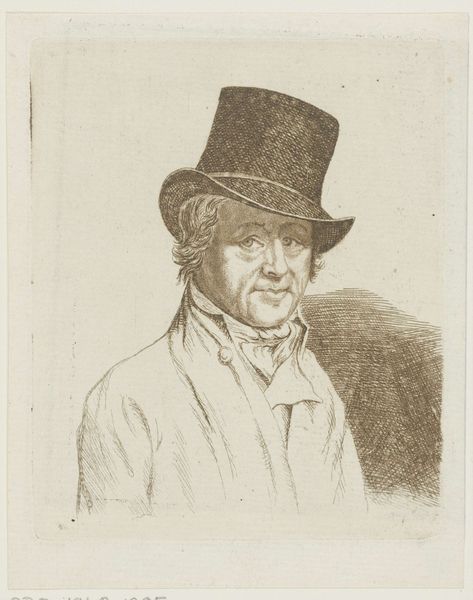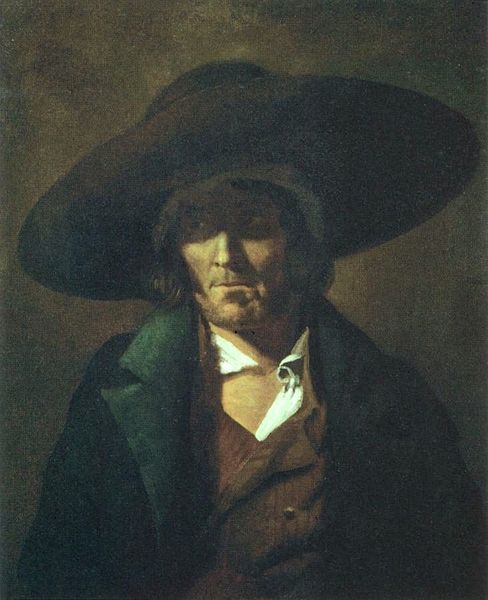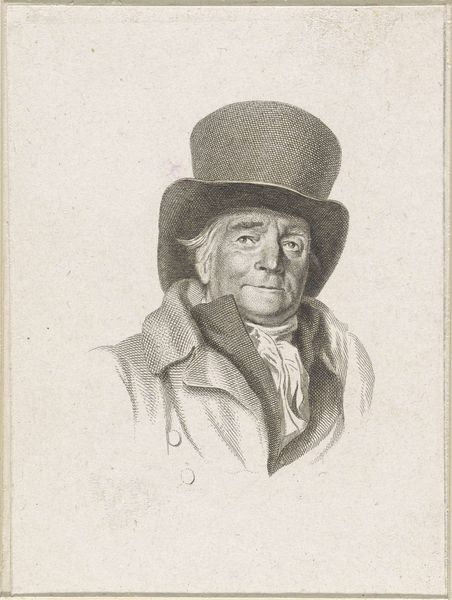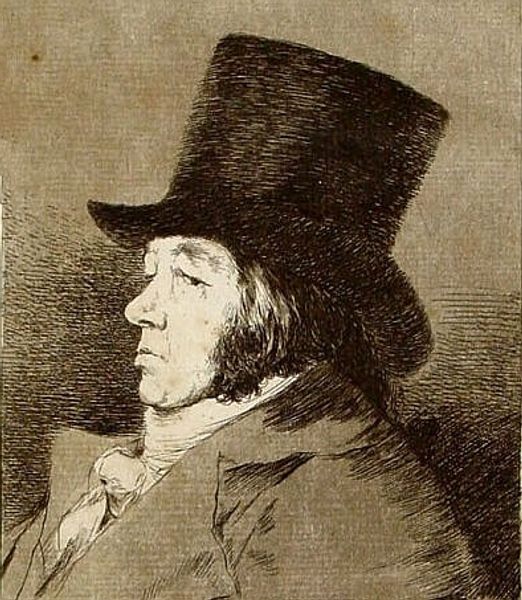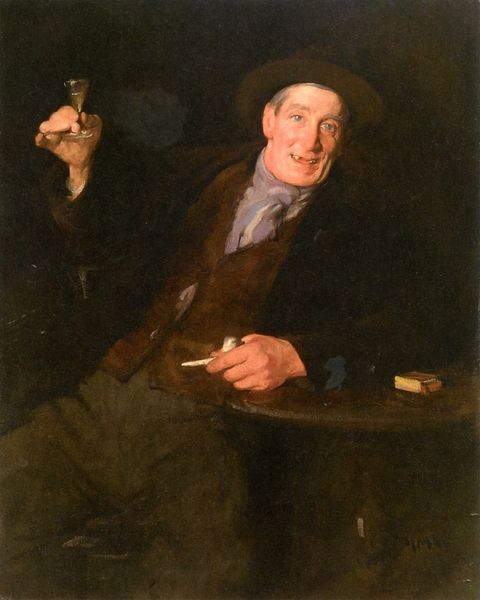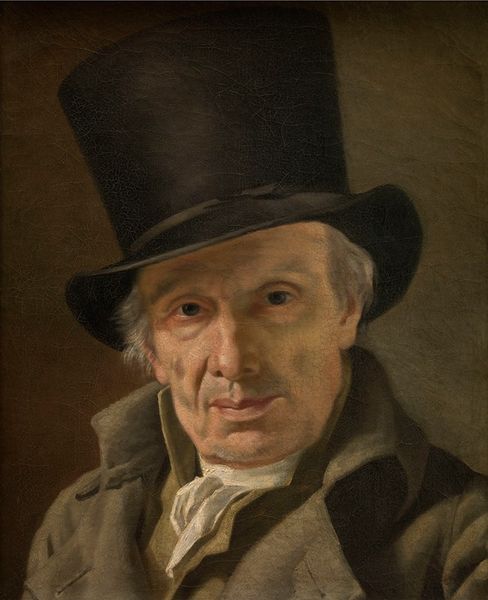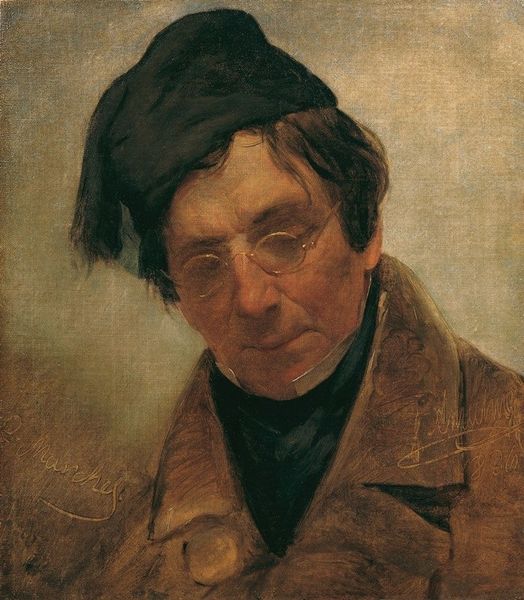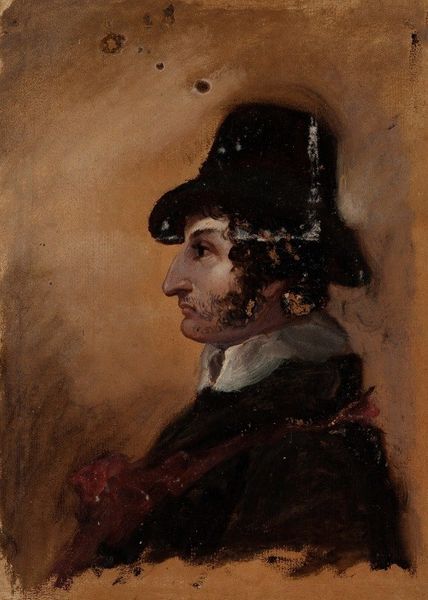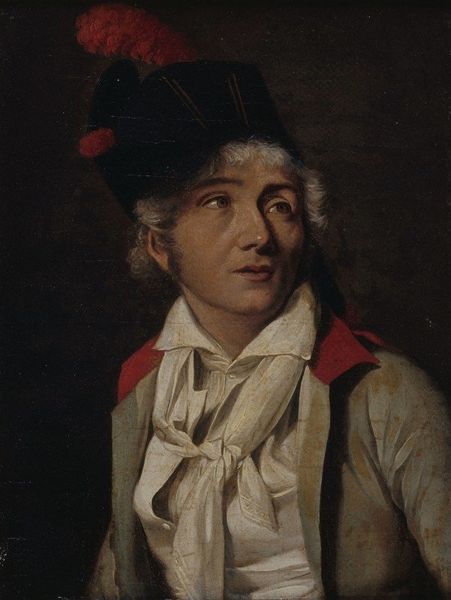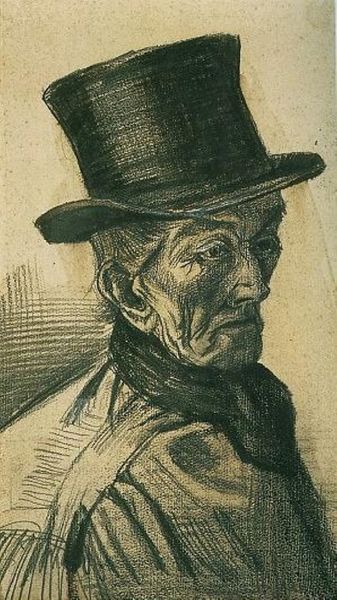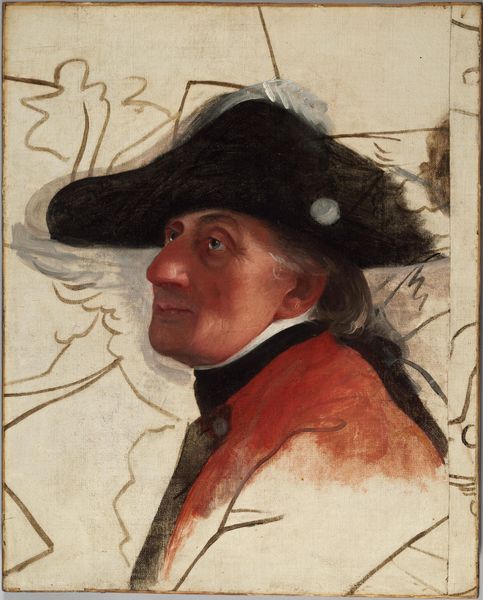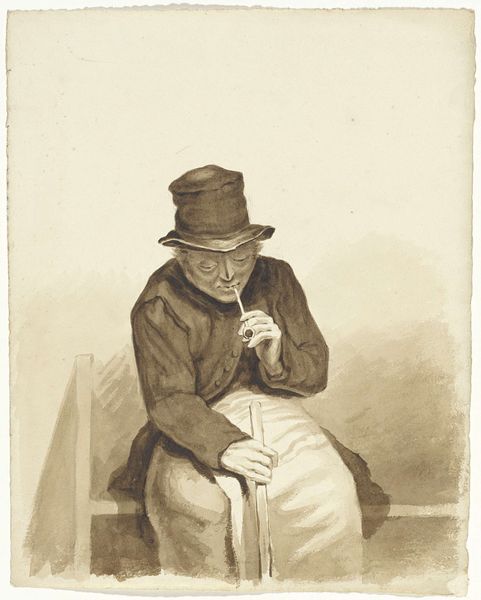
oil-paint
#
portrait
#
self-portrait
#
oil-paint
#
oil painting
#
romanticism
#
portrait drawing
#
genre-painting
#
facial portrait
#
portrait art
Copyright: Public Domain: Artvee
This is Francisco Goya's "Self-Portrait," an oil painting on canvas. It presents a figure bathed in a soft glow against a shadowy background. The most striking aspect is Goya's use of light and shadow. The artist's face and upper body emerge from the darkness with the contrast highlighting his sly, self-aware grin. The composition is dominated by dark earth tones, offset by the stark white of his shirt and bow. Goya uses a loose brushstroke, especially visible in the rendering of his hat, which gives the artwork an unfinished, immediate quality. How does Goya use the formal language of painting to construct this self-image? The choice of darker colours reflects a broader engagement with the sublime, a philosophical concept that explores experiences of awe, terror, and the limits of human understanding. The loose brushwork and dramatic lighting function as signs, which invite us to question fixed meanings and to consider the complexities of self-representation.
Comments
No comments
Be the first to comment and join the conversation on the ultimate creative platform.
